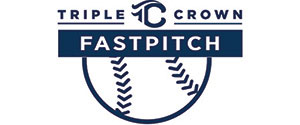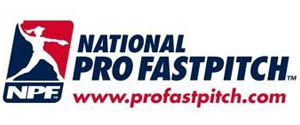Rule Question(s) are based on ASA...
Here is the play...
Runners at 2nd and 3rd, two out, 1 - 1 count on the batter. Batter swings and misses (at strike two) which is not caught by the catcher. Batter, thinking it is strike three, runs to first base. Catcher retrieves ball and throws to first base. Base umpires signals and vocalizes the out at first on the batter-runner. Meanwhile the runners at 2nd and 3rd are moving on the play. First baseman, thinking that the 3rd out as been recorded, rolls the ball to the mound as R2 crosses the plate. At the end of all this the umpires sorted it out and put the batter back up to bat with a 1 - 2 count but scored both runs.
Here is my questions...
Is it a correct mechanic for the base umpire to make the out call at first. What is the rule/rules that would address this mechanic for either a yes or no answer?
Since the defense thought there were three outs based on the out at first they didn't attempt to prevent the runners from advancing. The runner at 3rd most likely would have scored regardless of the base umpires call or non-call but the runner from 2nd most likely would have stopped at third had the umpire not made the out call at first. Where would the runners be placed and what rule/rules would be used to make this decision?
This play actually happened yesterday. Neither team questioned the ultimate call that the umpires made on placing the batter back to bat with 1 - 2 and scoring both runners.
The Umpire Corner
I believe that the 2 runs are correctly counted. I base my opinion on the fact that regardless of what the umpire does/doesn't say or do it is up to the defense to be aware of what is happenning at all times--the # of outs, the ball/strike count, etc.
In this case, shame on both the catcher and the 1b for not 'playing the game' and their teammates for not helping them out by speaking up.
Again, just my 2 cents...
In this case, shame on both the catcher and the 1b for not 'playing the game' and their teammates for not helping them out by speaking up.
Again, just my 2 cents...
- softballdadcoach
- Posts: 75
- Joined: Fri Aug 14, 2009 9:32 am
That still leaves the umpire mechanics question unanswered
Is it a correct mechanic for the base umpire to make the out call at first. What is the rule/rules that would address this mechanic for either a yes or no answer?
- henryg
- Posts: 14
- Joined: Mon Oct 19, 2009 9:38 am
henryg wrote:Is it a correct mechanic for the base umpire to make the out call at first. What is the rule/rules that would address this mechanic for either a yes or no answer?
There is no play at first base. This is a no-call.
If you're working with small guys, 12U and below, it would be best if PU would display and say the count loud as soon as they see the batter take off for first base. If you're working with older guys, 14U and up, you have to believe everyone's head is in the ballgame and they know the count and the number of outs, etc. You let everything play out. When it is all said and done, you indicate the count is 1-2 and bring the batter back to the plate.
- Jalamander
- Posts: 91
- Joined: Mon Jul 13, 2009 9:37 am
Jalamander,
Thanks for the input. The PU did announce 1 - 1 loudly so not sure why the BR took off (14U). Assuming the BU correctly made no call but r2 and r3 crossed the plate without a play from the 1b what would you do with the runners? Logic would tell me that they would be allowed to score since it was a live ball and they advanced at thier own risk. I've been told that ASA used to have a rule about this situation and penalized the offense as a deceptive play (if judged intentional by the br) but that rule no longer exists. If true, then a coach can instruct his batter to pull this play in hopes of scoring some runs. If it doesn't work then no harm for the offensive team the batter just returns to the plate.
Henryg
Thanks for the input. The PU did announce 1 - 1 loudly so not sure why the BR took off (14U). Assuming the BU correctly made no call but r2 and r3 crossed the plate without a play from the 1b what would you do with the runners? Logic would tell me that they would be allowed to score since it was a live ball and they advanced at thier own risk. I've been told that ASA used to have a rule about this situation and penalized the offense as a deceptive play (if judged intentional by the br) but that rule no longer exists. If true, then a coach can instruct his batter to pull this play in hopes of scoring some runs. If it doesn't work then no harm for the offensive team the batter just returns to the plate.
Henryg
- henryg
- Posts: 14
- Joined: Mon Oct 19, 2009 9:38 am
henryg wrote:Jalamander,
Thanks for the input. The PU did announce 1 - 1 loudly so not sure why the BR took off (14U). Assuming the BU correctly made no call but r2 and r3 crossed the plate without a play from the 1b what would you do with the runners? Logic would tell me that they would be allowed to score since it was a live ball and they advanced at thier own risk. I've been told that ASA used to have a rule about this situation and penalized the offense as a deceptive play (if judged intentional by the br) but that rule no longer exists. If true, then a coach can instruct his batter to pull this play in hopes of scoring some runs. If it doesn't work then no harm for the offensive team the batter just returns to the plate.
Henryg
No, someone is confused.
There still is a rule which considers a retired runner from continuing to run after being retired for the purpose of confusing the defense and drawing a throw. At one time, the interpretation of the rule was also applied to a retired batter who would run on a uncaught third strike when they were not permitted. That is no longer the case. The players and coaches are expected to be aware of the count and outs at all time and play accordingly.
However, this batter was never retired. Therefore, even if the interpretation was still to be applied to a retired batter, would not apply to this player.
- MTR
- Posts: 2317
- Joined: Thu Jan 03, 2008 5:21 am
henryg wrote:Assuming the BU correctly made no call but r2 and r3 crossed the plate without a play from the 1b what would you do with the runners? Logic would tell me that they would be allowed to score since it was a live ball and they advanced at thier own risk.
Yes, that what I meant my letting everything play out. Any runs scored/outs made should stand.
henryg wrote:I've been told that ASA used to have a rule about this situation and penalized the offense as a deceptive play (if judged intentional by the br) but that rule no longer exists. If true, then a coach can instruct his batter to pull this play in hopes of scoring some runs. If it doesn't work then no harm for the offensive team the batter just returns to the plate.
I don't know where I saw this, wish I could give you a rule or Case number, but, I believe on an uncaught 3rd strike you can't penalize if she runs when she shouldn't (1st base occuppied, 0 or 1 out). My thinking, the same would hold true when she erroneously heads toward 1st base due to not knowing the count. Was it a planned play? I can't read anyones mind, so it is incumbent upon the defense to have their head in the game and know what to do.
- Jalamander
- Posts: 91
- Joined: Mon Jul 13, 2009 9:37 am
Ok, so I agree with everything written so far. The only wrinkle in this one is the the BU did not have "thier head in the game" and called the batter out at 1st for what appeared to be the 3rd out. I assume by your statements that the defense is still required to know the situation and ignore the BU out called in case they can retire one of the base runners for a 'real' 3rd out, correct?
I will confess, I am relatively new to softball rules. I am a 35+ year baseball umpire with experience from Little League thru D1 ball with a summer working minor league games so I have a fair understanding of baseball rules. A friend of mine ask me to work some softball tournaments and I told him I wanted to be confortable with the differences before I hit the field. Since July I have been observing games and asking lots of questions surrounding things like dead balls, delayed dead balls, look backs, interference, obstruction, etc since I have found definite differences in these areas between the two sports. I'm almost to the point of going onto the field so please bear with me if I keep asking for clarifications on the nuances of the game.
Thanks,
Henryg
I will confess, I am relatively new to softball rules. I am a 35+ year baseball umpire with experience from Little League thru D1 ball with a summer working minor league games so I have a fair understanding of baseball rules. A friend of mine ask me to work some softball tournaments and I told him I wanted to be confortable with the differences before I hit the field. Since July I have been observing games and asking lots of questions surrounding things like dead balls, delayed dead balls, look backs, interference, obstruction, etc since I have found definite differences in these areas between the two sports. I'm almost to the point of going onto the field so please bear with me if I keep asking for clarifications on the nuances of the game.
Thanks,
Henryg
- henryg
- Posts: 14
- Joined: Mon Oct 19, 2009 9:38 am
henryg wrote:Ok, so I agree with everything written so far. The only wrinkle in this one is the the BU did not have "thier head in the game" and called the batter out at 1st for what appeared to be the 3rd out. I assume by your statements that the defense is still required to know the situation and ignore the BU out called in case they can retire one of the base runners for a 'real' 3rd out, correct?
I will confess, I am relatively new to softball rules. I am a 35+ year baseball umpire with experience from Little League thru D1 ball with a summer working minor league games so I have a fair understanding of baseball rules. A friend of mine ask me to work some softball tournaments and I told him I wanted to be confortable with the differences before I hit the field. Since July I have been observing games and asking lots of questions surrounding things like dead balls, delayed dead balls, look backs, interference, obstruction, etc since I have found definite differences in these areas between the two sports. I'm almost to the point of going onto the field so please bear with me if I keep asking for clarifications on the nuances of the game.
Thanks,
Henryg
Cannot comment on the play as I was not there.
However, if I believe (as an umpire) that my miscall a 1B permitted a runner to score that I believe would not have scored had I not made the incorrect call, I would declare the ball dead and place the runners on the base I believe they would have attained had the wrong call not been made.
Yeah, a lot of garbage, but accurate.
- MTR
- Posts: 2317
- Joined: Thu Jan 03, 2008 5:21 am
MTR wrote:if I believe (as an umpire) that my miscall a 1B permitted a runner to score that I believe would not have scored had I not made the incorrect call, I would declare the ball dead and place the runners on the base I believe they would have attained had the wrong call not been made.
Okay, in the OP. you, as the BU, make an out call at 1st base on a batter that should not have run to 1st, and in so doing 2 runs score. What exactly would you do? Tell me how and where you would place the runners.
Okay, in the OP, you as the BU, now, make no call at 1st base on a batter that should ot have run to 1st, and in so doing at least one of the runs score and possibly 2 score. What exactly would you do?
In both cases, could you tell me the rule you apply for the decisions you've made?
- Jalamander
- Posts: 91
- Joined: Mon Jul 13, 2009 9:37 am
19 posts
• Page 1 of 2 • 1, 2




























